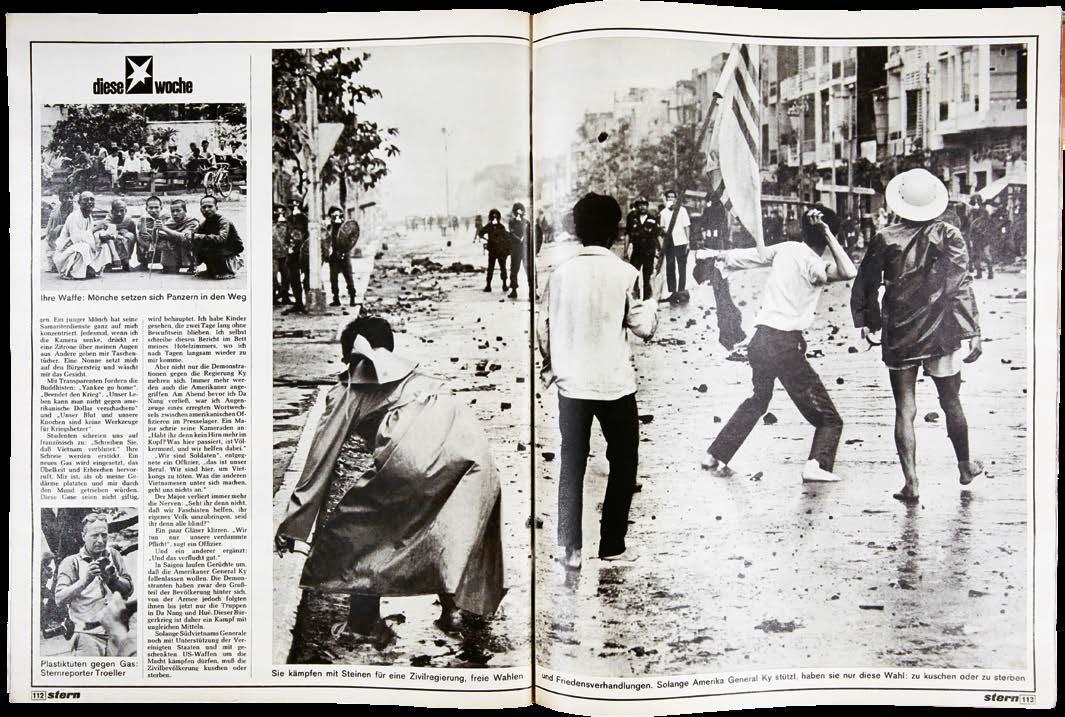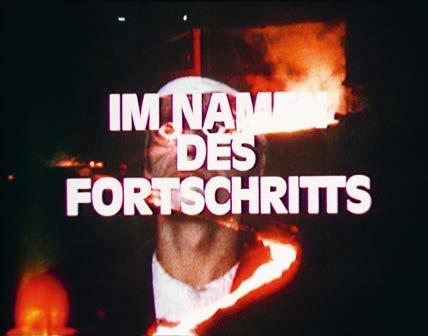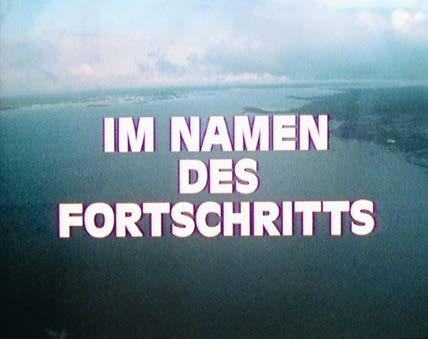13 Vorwort/Preface
Peter Gorschlüter, Gilles Zeimet
17 Ein Journalist:innen-Team mit Haltung und Anspruch/Ambitious Journalism with a Strong Stance
Petra Steinhardt
25 Der unkonventionelle Werdegang zweier engagierter Reporter:innen: Die Konstruktion des humanistischen Blicks von Deffarge & Troeller/ The Unconventional Career of Two Engaged Reporters: Deffarge & Troeller’s Humanist Perspective
Catherine Richard
61 «Ihr bringt uns den Atem der weiten Welt»: Deffarge & Troeller und ihre Auslandskompetenz für den Stern/ «You Bring us the Breath of the Whole Wide World»: Deffarge & Troeller and Their Foreign Expertise for Stern Miriam Zlobinski
79 Kommentar/Commentary Poulomi Das
FRAUEN DER WELT
83 Vom Nutzen der Viel-Ehe/ The Benefits of Polygamy
87 Kommentar/Commentary Koku G. Nonoa
89 Vom Fluch der Jungfräulichkeit/ The Curse of Virginity
93 Kommentar/Commentary Erminia Colucci
95 Im Käfig der Freiheit/ The Cage of Freedom
98 Im Namen der Liebe/ In the Name of Love
113 Kommentar/Commentary Amal Habani
115 Iran: Ja oder Nein zum Fortschritt: Die weiße Revolution / Der persische Traum /Iran: Yes or No to Progress. The White Revolution / The Persian Dream Raika Khorshidian, Shirin Naef, Heidar Zahedi
137 Deffarge & Troeller im Jemen: Vom Negativ zum Film/Deffarge & Troeller in Yemen: From Negative to Film Clara Bolin
153 Geopolitik und traditionelle Gemeinschaft: Deffarge & Troeller im Jemen/ Geopolitics and Traditional Communities: Deffarge & Troeller in Yemen Danilo Scholz
161 Kommentar/Commentary Hayat Al-Sharif
165 Kommentar/Commentary Massinissa Benlakehal
169 Kino der Zusammenhänge/ A Cinema of Correlations Dario Marchiori
183 Kommentar/Commentary Siedi Serag
IM NAMEN DES FORTSCHRITTS
187 Verarmungshilfe/The Plunderers
191 Mit Medizin ins Unglück/ Rich Man’s Medicine in A Poor Man’s Country 194 Auf Gedeih und Verderb/ For Better or for Worse 197 Bitterer Zucker/Bitter Sugar 201 Kommentar/Commentary Joerg Bader & Mabe Bethônico
217 Das Ende der Entwicklung: Perspektiven auf die Fortschrittsideologie in Lateinamerika/The End of Development: Perspectives on the Ideology of Progress in Latin America Matthias Pfaller
240 Der Fonds Troeller in der Sammlung des Centre national de l’audiovisuel (Luxemburg)/The «Fonds Troeller» in the Collection of the Centre national de l’audiovisuel (Luxemburg)
Catherine Richard
241 Das Sultanat Oman/ The Sultanate of Oman Victor Pranchère
246 Der fotografische Nachlass von Deffarge & Troeller am Museum Folkwang/ Deffarge & Troeller’s Photographic Works at Museum Folkwang Petra Steinhardt
248 Wie die Fotografien ins Museum kamen/ How the Photographs Found Their Way Into the Museum
Ingrid Becker-Ross-Troeller
KINDER DER WELT
253 ... denn ihrer ist das Himmelreich/... for Theirs is the Kingdom of Heaven
255 Kommentar/Commentary Cristina Bertazoni
258 Erziehung zum Heiligen Krieg/ Holy War Education
262 Die Deutschländer/Almancılar or Returned from Germany
265 Kommentar/Commentary Zeynep Aydar
268 Recht auf Arbeit/The Right to Work
Intro Anfänge/Beginnings
Autor:innenschaft/ Authorship Revue
Ausstellungen/ Exhibitions
Biografie/Biography Mitarbeiter:innen/ Co-Workers Frühe Berichte/ Early Reports
Stern -Reportagen/ Stern -Features Frankreich/France Spanien/Spain Frauen der Welt/ Women of the World
Indien/India
Togo
Ägypten und Italien/ Egypt and Italy
Peru
Frankreich/France Kurdistan Irak/Iraq Vietnam Sudan Iran
Publizistische Praxis/Publishing
LEGENDE ZU DEN BILDUNTERSCHRIFTEN
Ein Großteil der Fotografien in diesem Buch sind Marie-Claude Deffarge und Gordian Troeller zugeschrieben und befinden sich in der Fotografischen Sammlung im Museum Folkwang. Nur in den Fällen, in denen Deffarge oder Troeller eindeutig als der/die Fotograf:in bzw. Autor:in identifiziert sind, werden die Kürzel MCD und GT ausgewiesen. Darüber hinaus werden nur die Materialien aus dem CNA (Centre national de l’audiovisuel) als solche angegeben. Andere Autor:innen, soweit bekannt, sind aufgeführt. Die Titel gehen auf Informationen auf den Bildrückseiten zurück, soweit vorhanden. Bildunterschriften aus dem Stern wurden nicht übernommen. Eine geografische Zuordnung ist in den meisten Fällen dokumentiert. Falls nicht anders angegeben, handelt es sich bei dem Großteil der abgedruckten Fotografien um Silbergelatineabzüge, die neben einzelnen großformatigen Ausstellungsabzügen überwiegend in den Standardformaten des Stern , 20 × 30 cm oder 24 × 36 cm, vorliegen. Die Materialien sind in ihrem Originalzustand abgebildet. Die Inventarnummern sind verzeichnet, wodurch Abzüge in der OnlineDatenbank gefunden werden können. Systematische Quellenangaben zum Negativ- oder Diapositivmaterial finden sich im Verzeichnis im Nachlass.
KEY TO IMAGE CAPTIONS
The majority of the photographs in this book are attributed to Marie-Claude Deffarge and Gordian Troeller and are in the Photographic Collection of Museum Folkwang. The abbreviations MCD and GT are used only where Deffarge or Troeller is unambiguously identified as the photographer or author. In addition, only materials from the Centre national de l’audiovisuel (CNA, the National Audiovisual Centre) are referenced as such. Other authors are cited where known. The titles refer to information on the reverse of the images, where present. Image captions from Stern were not reproduced. A geographic classification is documented in most cases.
Unless otherwise stated, the majority of the reprinted photographs are gelatin silver prints, which are mainly in Stern ’s standard formats of 20 × 30 cm or 24 × 36 cm, apart from a few largeformat exhibition prints. The materials are reprinted in their original condition. A record of the inventory numbers enables prints to be found in the online database. Systematic source references for the negatives and slides appear in the index in the archive.
Die Materialangaben sind wie folgt gekennzeichnet/
The materials are designated as followed:
A = Abzug/Print
D = Diapositiv/Slide
KB = Kontaktbogen/Contact sheet
M = Maquette/Maquette
N = Negativ/Negative
Beispiel/Example:
N: G 226-20, Farah Diba, Teheran/Tehran, 1959
Jemen/Yemen Algerien/Algeria
Eritrea
Gabun/Gabon Senegal
Frankreich/France Brasilien/Brazil
Haiti
Mexiko/Mexico Venezuela Peru Madagaskar/ Madagascar Oman Saudi-Arabien
Bolivien/Bolivia
Iran
Türkei/Turkey
Portugal
Hinweis / Note
Deffarge & Troeller bewegten sich im journalistischen Umfeld der zweiten Hälfte des 20. Jahrhunderts. Obwohl sie ihre eigene eurozentristische Perspektive zunehmend reflektierten, finden sich in dieser Publikation vereinzelt Originaldarstellungen in Schrift und Bild, die mit rassistischen und sexistischen Inhalten einhergehen. Dazu zählen aus heutiger Sicht diskriminierende Stereotype, Armut, Gewalt sowie herabwürdigende Darstellungen von Personen aufgrund ihres Geschlechts oder ihrer Herkunft. Die Originaltexte beinhalten vereinzelt rassistische Begriffe; an einigen Stellen wurden Wörter daher durch diskriminierungsärmere Begriffe ersetzt und durch eckige Klammern gekennzeichnet.
Deffarge & Troeller worked in the journalistic milieu of the second half of the twentieth century. Although increasingly they came to reflect their own euro-centric perspectives, this publication includes occasional original textual and visual portrayals with racist and sexist content. From today’s viewpoint these include discriminatory stereotypes, poverty, violence, and disparaging representations of persons on account of their gender or origins. The original texts contain occasional racist terms; in some places, therefore, wording has been replaced by less discriminatory terms, indicated by the use of square brackets.
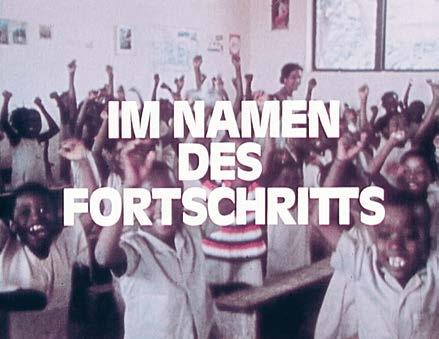
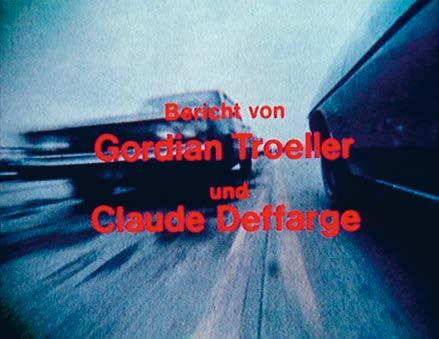
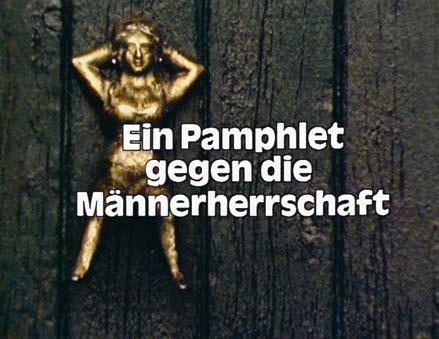
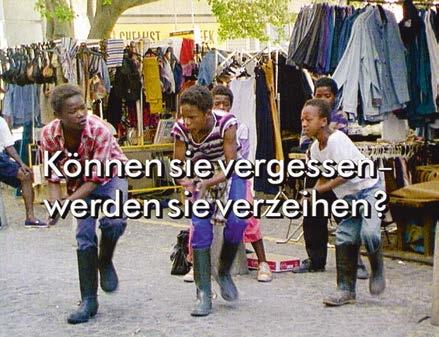
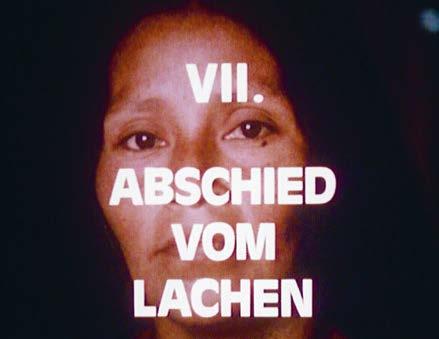
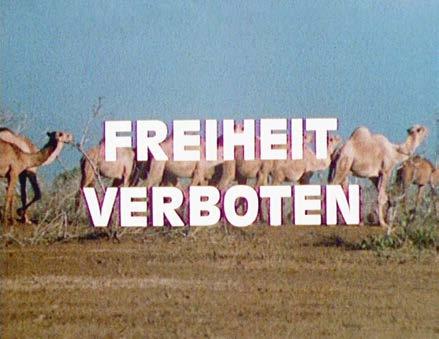
Reportagen und Filmen zu Wort. Außerdem haben wir Forscher:innen, Künstler:innen und Journalist:innen aus verschiedenen Ländern eingeladen, über ausgewählte Filme und Reportagen aus heutiger Sicht zu reflektieren. Beiträge jüngerer Wissenschaftler:innen setzen sich zudem mit Fachthemen wie der SternForschung, dem Dokumentarfilm, lateinamerikanischer Politik und der Aufarbeitung unserer kolonialen und postkolonialen Verantwortung auseinander. Dies als weiterer, aber bei Weitem nicht letzter Baustein in der andauernden Beschäftigung mit dem Werk von Deffarge & Troeller.
Das Ausstellungsprojekt ist eine Zusammenarbeit des Museum Folkwang mit dem CNA in Luxemburg, die hierfür ihre Expertise in Film und Fotografie vereinen. Unser Dank geht an alle diejenigen, die in Praxis und Theorie am Werk von Deffarge & Troeller mitgewirkt haben. Vor allem aber wäre dieses Projekt ohne die Initiative von Dr. Ingrid Becker-RossTroeller nicht denkbar. Ihre langjährige Zusammenarbeit mit Deffarge & Troeller, ihre unerlässliche Arbeit im Rahmen der Aufarbeitung, Verbreitung und Vermittlung des Werks und nicht zuletzt die Übertragung der Fotografien an das Museum Folkwang und der Filme an CNA ermöglichen die Erforschung und den Erhalt dieses Erbes. Daher gilt ihr unser erster und ganz besonderer Dank.
Einen umfangreichen Nachlass aufzuarbeiten, zu betreuen und in eine Ausstellung und einen Katalog zu überführen, ist nur durch eine intensive Auseinandersetzung zu bewerkstelligen. Auf der Seite des Museum Folkwang sind hierfür verantwortlich Petra Steinhardt, Matthias Pfaller, Clara Bolin und Thomas Seelig, aufseiten des CNA Catherine Richard, Michèle Walerich und Yves Steichen. Hans-Jürgen Lechtreck bereicherte den Gedankenaustausch im Museum Folkwang und vermittelte Kontakte zu Kooperationspartner:innen. Danilo Scholz trug zur Gestaltung des Begleitprogramms am Kulturwissenschaftlichen Institut in Essen bei.
Für neue Perspektiven auf das Werk von Deffarge & Troeller danken wir den Autor:innen Clara Bolin, Dario Marchiori, Matthias Pfaller, Victor Pranchère, Catherine Richard, Danilo Scholz, Petra Steinhardt und Miriam Zlobinski. Für ihre Auseinandersetzung mit dem Archiv in Essen, ihren Beitrag im Katalog sowie ihre Videoarbeit in der Ausstellung bedanken wir uns herzlich bei Raika Khorshidian, Heidar Zahedi, Shirin Naef und ihren Mitarbeiter:innen. Ebenso gilt unsere Anerkennung allen Kommentator:innen, die sich mit einer Reportage oder einem Filmprojekt auseinandergesetzt und ihre Gedanken, Meinungen und Informationen mit uns geteilt haben: Zeynep Aydar, Massinissa Benlakehal, Mabe Bethônico, Cristiana Bertazoni, Erminia Colucci, Poulomi Das, Koku Gnatuloma Nonoa, Amal Habani, Siedi Serag und Hayat Al-Sharif.
Für die umsichtige Betreuung und Produktion des Katalogs danken wir dem Verlag Scheidegger & Spiess, insbesondere Anthonie de Groot. Ein großer Dank richtet sich außerdem an Hannes Drißner und Elias Erkan für ihre kompetente und kreative Gestaltung des Katalogs und der Ausstellung in all ihrer medialen Vielfalt.
Wir danken ebenso den Kolleg:innen aus unseren Häusern in Verwaltung, Restaurierung und Technik, ohne die die Vorbereitung und Umsetzung des Projekts undenkbar wäre. Ein besonderer Dank richtet sich an Victor Pranchère und sein Team für die aufwendige Digitalisierung und Aufarbeitung des Films Das Sultanat Oman. Nicht zuletzt richtet sich unser besonderer Dank an das Ministerium für Kultur und Wissenschaft des Landes Nordrhein-Westfalen, das nicht nur das Ausstellungsprojekt am Museum Folkwang unterstützt, sondern bereits die Digitalisierung und konservatorische Sicherung des fotografischen Materials am Museum Folkwang ermöglicht hat. Eine komplette Darstellung des Gesamtwerks von Deffarge & Troeller würde den Rahmen einer einzigen Ausstellung und eines Katalogs sprengen. Die hier erstmals in den großen Zügen konzipierte Präsentation soll vielmehr ihre Arbeit neu ins Bewusstsein rufen und Anstoß sein für künftige Projekte. Die Archive im Museum Folkwang und im CNA Luxemburg stehen Forscher:innen und Besucher:innen dafür offen. Deffarge & Troeller waren zweifellos ihrer Zeit voraus. Dadurch bietet ihre Arbeit eine unschätzbare Quelle an Informationen, um die Wurzeln der globalen Folgen von Klimawandel, Umweltzerstörung, Wirtschaftskrisen, Migrationsströmen, Diskriminierung und politischer Einflussnahme in unserer heutigen Zeit zu verstehen.
and reportages from the standpoint of today. Articles from younger scholars also examine issues such as research on Stern, the documentary film, Latin American politics, and the reappraisal of our colonial and post-colonial responsibility. This is one more step, but by no means the final one, in the ongoing engagement with Deffarge & Troeller’s work.
The exhibition is a cooperative project between Museum Folkwang and CNA Luxembourg, who have combined their expertise in film and photography on this project. Our thanks go out to everyone who has been involved in theory or practice with the works of Deffarge & Troeller. First and foremost this project would be inconceivable without the initiative of Dr Ingrid Becker-Ross-Troeller. Her collaboration with Deffarge & Troeller over many years, her tireless work in preparing, interpreting, and disseminating their works, and not least the transfer of the photographs to Museum Folkwang and the films to CNA will enable this legacy to be preserved and researched. Therefore our first and very special thanks go to her.
Working through a large bequest, managing it, and transferring it into an exhibition and catalogue can only be achieved through an intensive process of engagement with the works themselves. Petra Steinhardt, Matthias Pfaller, Clara Bolin, and Thomas Seelig were in charge of this at Museum Folkwang and Catherine Richard, Michèle Walerich, and Yves Steichen at CNA. Hans-Jürgen Lechtreck enriched the exchange of ideas at Museum Folkwang and established contact with cooperation partners. Danilo Scholz contributed to the design of the accompanying programme at the Institute for Advanced Study in the Humanities in Essen.
We would like to thank the authors Clara Bolin, Dario Marchiori, Matthias Pfaller, Victor Pranchère, Catherine Richard, Danilo Scholz, Petra Steinhardt, and Miriam Zlobinski for new perspectives on the work of Deffarge & Troeller. Sincere thanks are also due to Raika Khorshidian, Heidar Zahedi, Shirin Naef, and their staff for their work on the archive in Essen, their contribution to the catalogue, and their video work in the exhibition. We are also grateful to all commentators who examined a reportage or film project and shared thoughts, opinions, and information with us: Zeynep Aydar, Massinissa Benlakehal, Mabe Bethônico, Cristiana Bertazoni, Erminia Colucci, Poulomi Das, Koku Gnatuloma Nonoa, Amal Habani, Siedi Serag, and Hayat Al-Sharif.
We would like to thank our publishers, Scheidegger & Spiess, for their professional management and production of the catalogue, especially Anthonie de Groot. We also owe a debt of gratitude to Hannes Drißner and Elias Erkan for their creative design of the catalogue and exhibition in all its media variety.
Additionally, we are deeply appreciative of our colleagues in administration, our technical staff, and our restorers, without whom preparing and implementing the project would have been impossible. Our particular thanks go to Victor Pranchère and his team for the difficult and time-consuming digitisation and restoration of the film The Sultanate of Oman.
Last but not least, we have to say a special word of thanks to the Ministry of Culture and Science of North Rhine-Westphalia, which is not only supporting the exhibition project at Museum Folkwang, but has already facilitated the conservation and digitisation of the photographic material at the museum.
Presenting the entire works of Deffarge & Troeller would go beyond the confines of a single exhibition and catalogue. Instead, the exhibition is designed to sketch the broad outlines of their work, bring it back into public consciousness, and act as a spur for future projects. The archives in Museum Folkwang and CNA Luxembourg are open to researchers and visitors for this purpose. Deffarge & Troeller were undoubtedly ahead of their time. Hence their work offers an invaluable source of information to understand the roots of the global effects of climate change, environmental degradation, economic crises, migration flows, discrimination, and political interference in our own times.
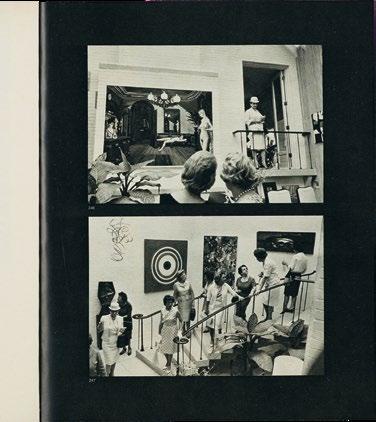
Peter Gorschlüter
Direktor / Director Museum Folkwang
Gilles Zeimet Direktor / Director Centre national de l’audiovisuel (CNA)
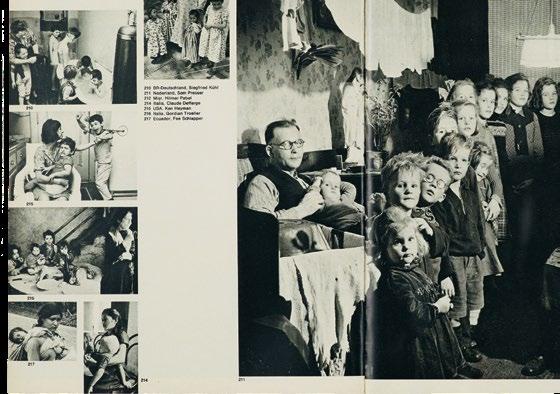

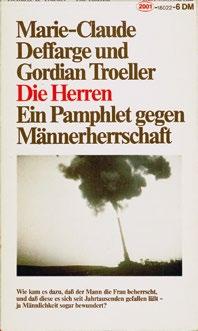
weiße Revolution /Page from the Persian version of the Dub-Sheet The White Revolution , 1975 [4] CNA AC001738, Mappe mit Informationen zu Filmkopien/Folder with information on film copies [5] CNA AC001717, Vorbereitungsschema zum Film Kein Platz für Indianer /Preparation scheme for the documentary The Cree Indian’s Last Hunt , 1976 [6] CNA AC001700, Diverse Dubsheetsordner/Various Dubsheet folders (in
[1] Karteisystem MCD/Card index system MCD [2] CNA AC001712, Ordner mit annnotierten Entwürfen von Dubsheetseiten/Folder with a nnotated drafts of dubsheet pages [3] CNA AC001721, Seite aus der persischen Version des

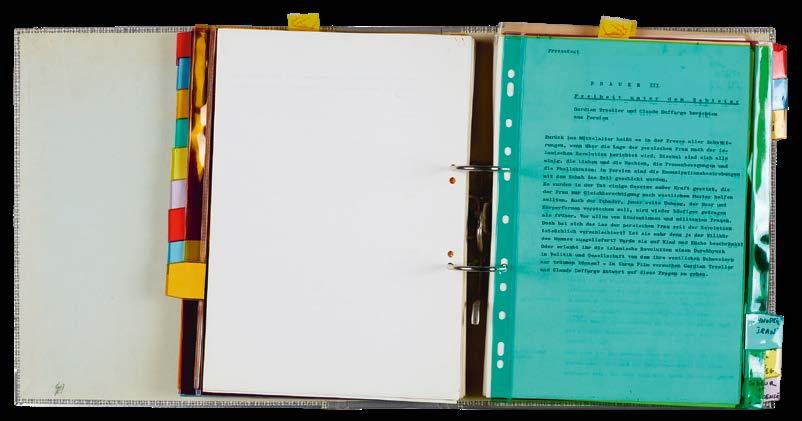
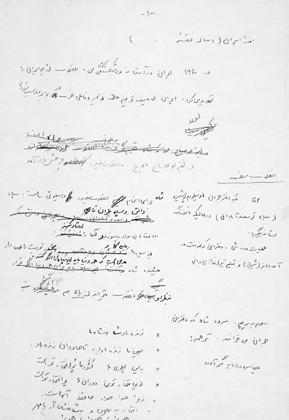
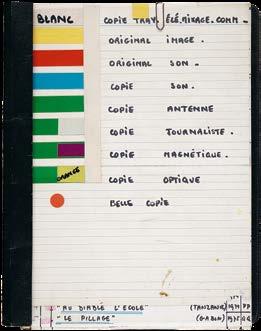
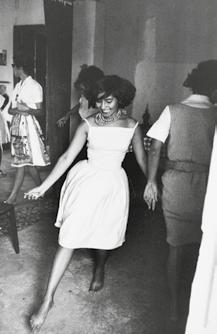
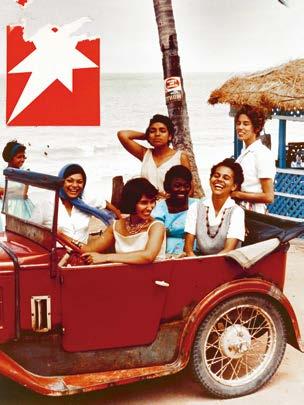
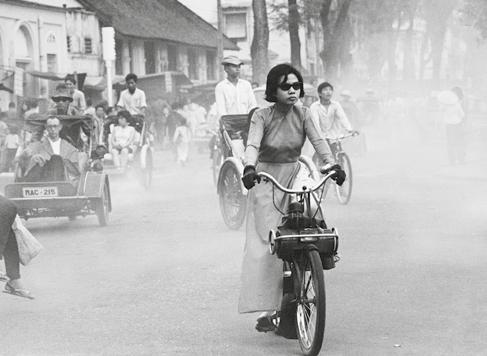
Frauen der Welt / Women of the World
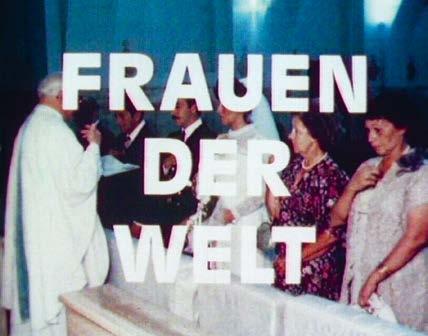
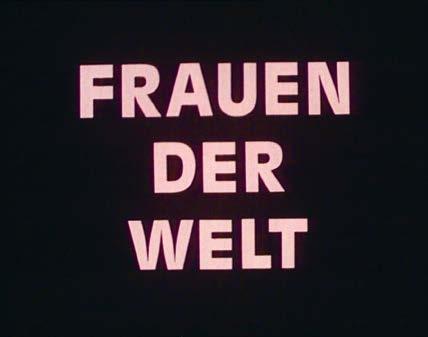
Vom Nutzen der Viel-Ehe / The Benefits of Polygamy
Togo, 1979
43 min.
Erstausstrahlung / First released: RB 18.11.1979
Mitarbeit / Collaboration: Ingrid Becker-Ross
Kamera / Camera: Gordian Troeller
Ton / Sound: Stanislas Choko, Elmar Schmidt
Schnitt / Editing: Ingeburg Forth
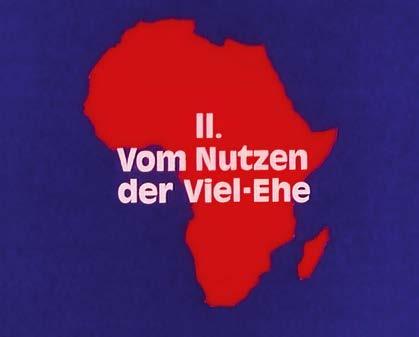
00:13
Deutschlehrerin: «Man sagt, die afrikanischen Frauen wären die Sklavinnen ihrer Männer. Das glaube ich einfach nicht. Die Frauen hier sind unabhängiger als die in Deutschland. Dort sind sie emotional und so von ihrem Mann abhängig.
Das sind wir nicht. Hier gibt es zwei getrennte Welten: Männerwelt und Frauenwelt. Für uns ist das nicht so wichtig, was die Männer von uns denken. Das ist uns einfach egal. Wir leben glücklich mit unserem Zustand.»
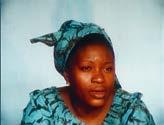
German teacher: «People say that African women are the slaves of their husbands. I just don’t believe this. Women here are more independent than in Germany. There they are dependent on their husbands emotionally and otherwise. We are not like that. There are two different worlds here: the men’s world and the women’s world. It isn’t particularly important to us what men think of us. We just don’t care. We are happy with the way things are.»

01:08 01:29 03:09
Stoffhandel – eines der großen Geschäfte Afrikas. Frau Patience gehört zu den Bossen in diesem Gewerbe. Ihresgleichen werden Nana Benz genannt. «Nana» wie flotte Biene, und «Benz» wie das Auto, das die meisten von ihnen fahren. Die Stoffballen kommen aus Holland, wo sie speziell für den afrikanischen Geschmack hergestellt werden. Frau Patience führt die Stoffe ein und verkauft sie an Wiederverkäuferinnen, die sie auf den Märkten anbieten.



The textile trade — one of the biggest businesses in Africa. Patience is a boss in this trade. Women like her are called Nana Benz. Nana like a busy bee, and Benz like the car that most of them drive. The bales of cloth come from Holland, where they are specially produced to suit African tastes. Patience imports the cloth and sells it to resellers, who then sell it at markets.
04:31 05:49 05:56 06:11
Die meisten dieser Frauen leben in Viel-Ehe. Das verdiente Geld gehört ihnen, denn im polygamen Haushalt herrscht Gütertrennung. Wenn wirtschaftliche Unabhängigkeit vom Mann die Voraussetzung für die Freiheit der Frau ist, dann schafft die afrikanische Viel-Ehe diese Voraussetzung. Erst in der Einehe verliert die Afrikanerin ihre Selbstständigkeit. Der Mann wird zum Inhalt ihres Lebens. Sie will ihm gefallen, muss sich schön machen.



Most of these women live in polygamous marriages. The money they earn belongs to them, since in polygamous households there is a strict division of property. If economic independence from men is a precondition for women’s freedom, then an African polygamous marriage comes with this precondition. It is only in monogamous marriages that Africa women lose their independence. Their husbands become the content of their lives. They wish to please them and they have to make themselves pretty for them.
that Vietnam is Bleeding to Death›», in: Stern , Heft/no. 24, 12.6.1966
